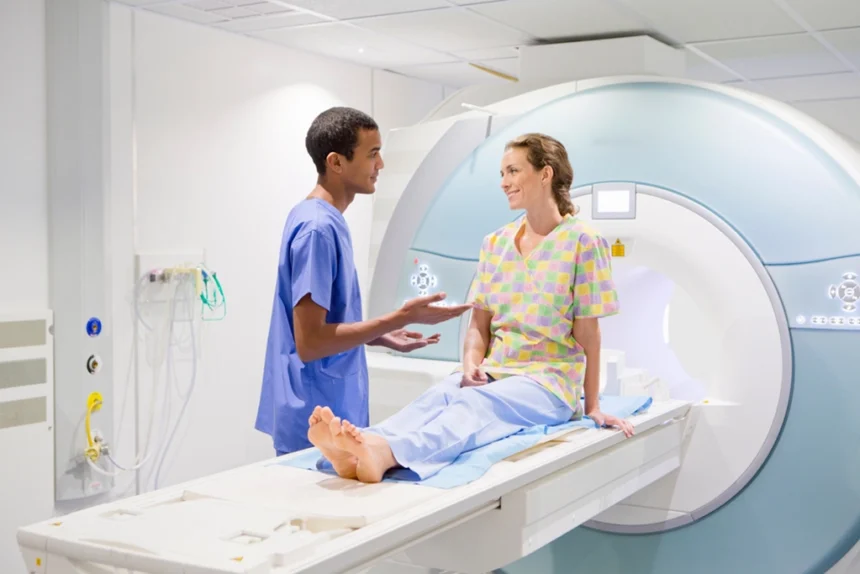Getting an MRI can be overwhelming when you’re unsure of what to expect. This medical imaging procedure enables doctors to visualize the inside of your body without the need for surgery. Understanding the basics beforehand can ease your concerns and help you prepare properly. Here are three things every patient should know before their MRI appointment.
What Conditions Does an MRI Diagnose?
An MRI provides detailed images that help doctors identify many different health conditions. Your physician may recommend this scan to get a clearer picture of what’s happening inside your body. The technology uses magnetic fields and radio waves to create precise images of organs, tissues, and bones. Common conditions that MRI helps diagnose include:
- Brain and spinal cord issues – Doctors can spot tumors, strokes, multiple sclerosis, and spinal injuries with detailed brain and spine images
- Joint problems – Torn ligaments, cartilage damage, and arthritis show clearly on MRI scans of knees, shoulders, and other joints
- Heart conditions – Specialized cardiac MRIs reveal heart muscle damage, valve problems, and blood vessel abnormalities
- Abdominal concerns – Liver disease, kidney problems, and digestive tract issues become visible through abdominal MRI imaging
- Cancer detection – MRI scans help find tumors, determine their size, and check if cancer has spread to other areas
What Preparation Steps Are Needed?
Proper preparation is key so your MRI scan produces the best images for an accurate diagnosis. By following the instructions provided by your healthcare team, you can avoid delays or the need to reschedule your appointment. Most preparation involves removing metal objects, changing into a hospital gown, and completing any necessary paperwork. Some scans may require additional preparation steps; therefore, it is advisable to plan ahead. Here’s a quick guide to MRI preparation steps:
- Remove all metal items: Take off jewelry, watches, hairpins, and any clothing with metal zippers or buttons before entering the MRI room. Metal can interfere with the imaging process.
- Inform staff about implants: Let your technician know about pacemakers, surgical clips, artificial joints, or any other metal devices in your body. This helps you stay safe during the scan.
- Follow the eating instructions: Some MRI scans require fasting for several hours, while others allow you to eat normally. Your healthcare team will provide specific guidelines based on the type of scan.
- Arrange transportation: If sedation is needed for anxiety or claustrophobia, you’ll need someone to drive you home after the procedure.
- Complete screening forms: Be honest about your medical history, allergies, and medications when filling out the required screening forms. This affirms the scan is safe and effective.
By preparing properly, you’ll help streamline the process and allow for accurate and reliable results from your MRI. Always communicate any concerns or questions to your healthcare team in advance.
What Should Patients Expect Inside?
The MRI machine resembles a large tube with a sliding table positioned in the center. You’ll lie on this table, which moves you into the machine’s opening. The space inside can feel tight, but technicians monitor you throughout the entire procedure.
During your scan, the machine makes loud knocking and tapping sounds. These noises are completely normal and indicate the machine is working correctly. Most facilities provide earplugs or headphones to reduce the noise level and help you stay comfortable.
The actual scanning process requires you to lie very still. Movement can blur the images and affect the quality of your results. Your technician will communicate with you through an intercom system and inform you of the remaining time. Most MRI scans last between 30 and 60 minutes, depending on the body part being imaged.
Consult a Specialist
Getting an MRI is a valuable step toward better understanding your health condition. The detailed images help your doctor make accurate diagnoses and create effective treatment plans. Remember that having an MRI doesn’t automatically mean something serious is wrong.
If you have questions or concerns about your upcoming MRI, don’t hesitate to contact your healthcare provider. They can address your specific worries and provide additional guidance tailored to your situation. Taking an active role in your healthcare helps provide the best possible outcomes for your health and peace of mind.





